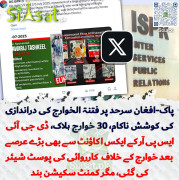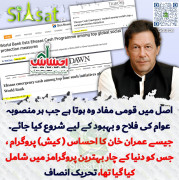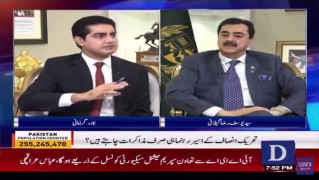Faheem Niaz
Senator (1k+ posts)

After reports appeared initially in the electronic media that he was doled out almost Rs400 million by Malik Riaz of Bahria Town fame, Chief Justice of Pakistan Iftikhar Muhammad Chaudhry took suo motu notice against his own son, Arsalan Iftikhar, on June 6. This can be termed the Longest Day in Pakistans judicial history. June 6 coincided with the historical Longest Day, the Allied landings at Normandy in 1944. Because of the chief justice connection, this straightforward confrontation between two individuals has become one of the most important cases in the history of the Supreme Court.
The suo motu action speaks volumes for the chief justices sagacity in pre-empting the issue. Similar allegations made against the family members of other judges would never have generated the storm we see today in Pakistan. Even though it was done belatedly, by removing himself from the bench hearing the case the chief justice avoided possible charges of conflict of interest being levelled, thereby protecting the honour and dignity of the apex court.
The merits of this particular case notwithstanding, the dismal fact remains that after a sustained campaign against the Pakistani Army, a campaign now fully exposed by the Memogate Commission verdict, the other institution that had the trust and respect of Pakistans entire citizenry is now being targeted, and in the process the reputation of our revered chief justice is being sullied.
Everyone knows real-estate tycoon Malik Riaz has excellent connections, and not only among the political and military elite. He is also known to be a close confidante and associate of President Asif Ali Zardari. That the facts of the case have become undistinguishable from fiction is not surprising, and conspiracy theories abound. A lot of expert opinion is being expressed by anyone and everyone who can get within speaking distance of a reporters microphone or can appear as a guest on any one of the many television talk shows.
There are three players in this particular case. First, Arsalan Iftikhar, who generally does not enjoy a very good reputation, secondly Malik Riaz himself, a self-made man who has done outstanding work in the housing industry in Pakistan, and, thirdly, by implication, Chief Justice Iftikhar Chaudhry, who is a person of impeccable character and holds a special position in the hearts of the citizens of Pakistan. While prima facie some people seem to have made up their minds that Arsalan Iftikhar is guilty, not many people are ready to believe his father is, even by association.
Vested interests are calling for the chief justice to resign; this is unacceptable and highly unfair. No one should be railroaded from office on the basis of evidence not directly connected to him. On the other hand, if it is proven that Arsalan Iftikhar is guilty, the law should be allowed to take its course without any concession. In any case, Malik Riaz is now on record that he has been using bribery as a weapon. And as for blackmail, for what purpose and why was he diligently maintaining receipts, records of credit cards and making videos?
Malik Riaz is not just anybody. He is a man who has energised the housing industry in Pakistan, and his projects are better managed than comparable elite housing estates in the First World countries. Obviously, such men do not get to do such outstanding work in our business and political environment without using money and influence. He has quite a collection of retired professionals who are aware not only of the intricacies of governing but of how to manipulate the process. These include retired personnel from the ISI and the MI.
While his employees do give him invaluable access, he will make enemies, some out of sheer jealousy at his tremendous success. The problem is that people in his position do tend to get carried away in exercising power and Malik Riaz is no exception. His press conference after his appearance in the Supreme Court was uncalled for, and a public-relations disaster, Malik Riaz managed to damage himself far more than the target of his attack, the chief justice.
Many people tend to forget how business is done in Pakistan. When someone has money and also the right connections in powerful places, he can wield massive influence. It is normal to spend money to influence those in a position of authority to get that person to be favourably disposed towards ones objectives. In that process the media assumes inordinate significance, and if it is required that some members of the journalistic community be manipulated by using the power of money, so be it.
Because of the number of cases against the government, and the unconcealed glee in PPP circles at the chief justices discomfort, there is a suspicion that this could have been a deliberate frame-up in which a lot of people were involved. Arsalan was the chief justices Achilles heel, and those baying for his blood could have focused on the weak point. When Arsalan was found not delivering the goods, the pressure was force-multiplied. Malik Riaz claims he was being blackmailed, by the look of it, it is the other way round!
The journalist community has taken a beating from this sordid affair and has come out looking quite ragged. For starters, why did Malik Riaz choose to break the news to a select few journalists and/or TV anchors? Some journalists have been trying to throw muck at the chief justice as if their lives depended upon it, defending their own integrity by taking cheap shots at other journalists. This has added to the rumours that some are on Malik Riazs payroll.
Those showing biased or vested interest can be suspected of accepting money or accepting graft in any other form. In the process this not only harms the entire media community, but also the people of Pakistan by trying to hide the truth and promoting a paid-for agenda. One good thing that can come out of this episode, if it is allowed to come to its logical conclusion, is that we will know without any shadow of doubt who the black sheep are among us.
Instead of indulging in a blame game, it is time to do some real damage control. Once and for all here is an opportunity to uncover the machinations of whoever is pulling the strings. Previously the army was the target of all the venom, and now it is the turn of the Supreme Court. The Supreme Court must hand over the investigation of this case to a judicial commission headed by a senior judge in the same manner as was done in the Memogate affair. To keep the process transparent, the members of this commission must be appointed by the senior-most judge after the chief justice. This commission should be mandated to probe the entire affair and give its findings within a very short term. Based on the findings, the matter can proceed ahead.
In the meantime we have been reminded yet again of one thing: money talks in Pakistan!
The writer is a defence and political analyst. Email: isehgal[MENTION=9251]Pathfinder[/MENTION]9. com
Source



























